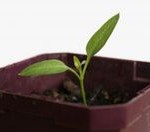Supreme Court to Rule if Planting Patented Seeds Constitutes Infringement
 California – Monsanto Co. asked the United States Supreme Court to uphold a ruling that a farmer infringed its Roundup Ready soybean seed patent when he planted the seeds, arguing that if it ruled otherwise it would undercut patent rights for products that can easily be reproduced.
California – Monsanto Co. asked the United States Supreme Court to uphold a ruling that a farmer infringed its Roundup Ready soybean seed patent when he planted the seeds, arguing that if it ruled otherwise it would undercut patent rights for products that can easily be reproduced.
In the brief Monsanto filed prior to the oral arguments scheduled for February 19, Monsanto asked that the court should dismiss Vernon Bowman’s argument that Monsanto’s patent rights were exhausted when the company allowed the seeds to be sold. Monsanto argues that the Federal Circuit ruled correctly when it said Bowman infringed its patent rights by planting the seeds he purchased and creating more of the patented seeds.
Monsanto argued that the doctrine of patent exhaustion states that the patent owner loses the right to control its patented product after an authorized sale, but the doctrine only covers the actual product sold.
In its brief to the court, Monsanto stated that the doctrine of patent exhaustion “cannot apply to other articles, such as the new soybeans petitioner grew, that have never been sold. Monsanto’s patent rights in those soybeans were thus not exhausted.”
Patent law does not allow a consumer who has purchased a patented item to recreate the product based on the template of the original, and Monsanto argues that just because seeds are grown instead of manufactured does not mean it should not have the same patent rights.
Monsanto also argued that if the court holds that Monsanto’s patent rights in the seeds were exhausted, it would take away the incentive to undergo the expensive process of developing products that can be easily replicated because there would be little patent protection.
Inventors “would find it impossible to maintain the exclusivity conferred by the patent laws the moment he commercialized the invention: Every sale would create a new potential competitor with rights to make, use and sell new copies of the invention,” Monsanto said.
Bowman argues that the Federal Circuit’s finding that he is liable for infringement for planting seeds creates an exception for self-replicating patented products in the doctrine of exhaustion giving those products an unprecedented level of patent protection, which he claims should not be allowed.













